Renal Vegetarian Diet
Eating a kidney-friendly and plant based or vegetarian diet can be challenging at times, but it doesn’t have to be so intimidating. Whether you’re just starting out on a renal vegetarian diet or need help along the way, this article is here to guide you! We will go over what foods are best for your health and how to make meal planning easier.
Having a well balanced plant-based diet while managing chronic kidney disease (CKD) can provide many beneficial effects such as lowering cholesterol levels and reducing inflammation in the body. Once you learn how is chronic kidney disease diagnosed, the process gets a whole lot easier!
If properly planned, following a plant-based lifestyle could improve overall health by increasing intake of fruits and vegetables that are rich in vitamins, minerals, antioxidants and fiber.
However, there are certain considerations one must take into account when choosing foods for a renal vegetarian diet.
This includes avoiding foods with high levels of potassium like avocado, bananas and potatoes as well as limiting sodium intake from processed foods like canned soups or sauces. Although, there are some low sodium canned foods For CKD worth checking into.
In addition to selecting appropriate food choices based on nutrient content, portion control should also be taken into consideration when creating meals.
A healthy renal vegetarian diet is possible for every stage of CKD, and for both beginners and experts in the vegan diet. You can look into renal diet restrictions by stage of CKD.
With some careful planning and mindful eating habits, renal patients can successfully get adequate nutrition and maintain their health through good dietary practices without sacrificing flavor or variety.
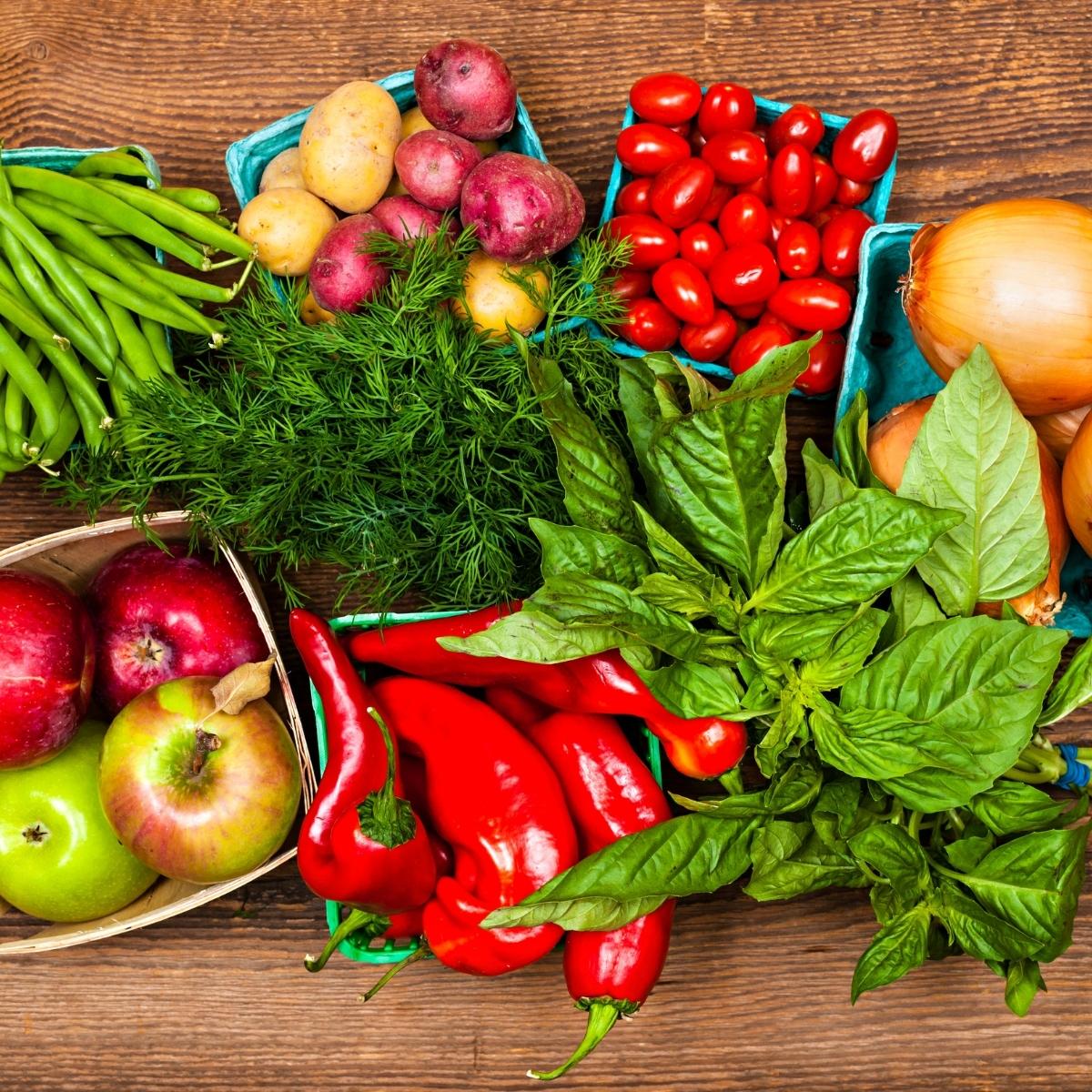
Jump to:
- Benefits Of A Renal Vegetarian Diet
- Foods To Eat And Avoid
- Protein Alternatives
- Low-Potassium Fruits And Vegetables
- Low-Phosphorus Grains And Legumes
- Low-Sodium Dairy Alternatives
- Calcium Sources
- Food Preparation Tips
- Snack Ideas
- Special Considerations For Diabetics
- FAQs About Renal Vegetarian Diets
- A Vegetarian Lifestyle Is A Healthy Choice, Even With CKD
Benefits Of A Renal Vegetarian Diet
A renal vegetarian diet has many health benefits. Eating a plant-based diet is beneficial for those with chronic kidney disease, as well as those who are looking to improve their overall nutrition and health.
Vegetarian diets can provide essential vitamins, minerals and antioxidants that help reduce the risk of cardiovascular disease, cancer, and other chronic illnesses.
Additionally, following a renal vegetarian diet may lead to weight loss or maintenance of desired body weight when done properly compared with meat-based diet.
In terms of nutritional value, vegan meals are packed with protein from sources such as legumes, nuts, seeds and grains. They also contain high amounts of fiber which helps promote healthy digestion while keeping you feeling full longer.
Furthermore, certain leafy greens like kale and spinach offer generous amounts of vitamin A and C plus iron and magnesium which are important nutrients for health sustenance.
All these factors can result in a better overall nutritional status especially in end stage renal disease patients. There are even specific end stage renal failure diet recipes you can try out!
Renal vegetarian diets can be simple yet delicious! There are plenty of recipes available online if you want some culinary inspiration. From veggie stir-fries loaded with fresh veggies to hearty soups featuring beans or lentils – it’s easy to create tasty meals without compromising your nutritional needs! Are lentils bad for you? No!
With meal plans tailored to your individual needs, incorporating nutrient rich vegetarian foods into your daily routine will easily become second nature to you.
For More Recipes and Ideas --->> Get Your Free Meals and Recipes That Are Perfect for Pre-Dialysis Diets, Pre-Dialysis with Diabetes, or Dialysis Diets.
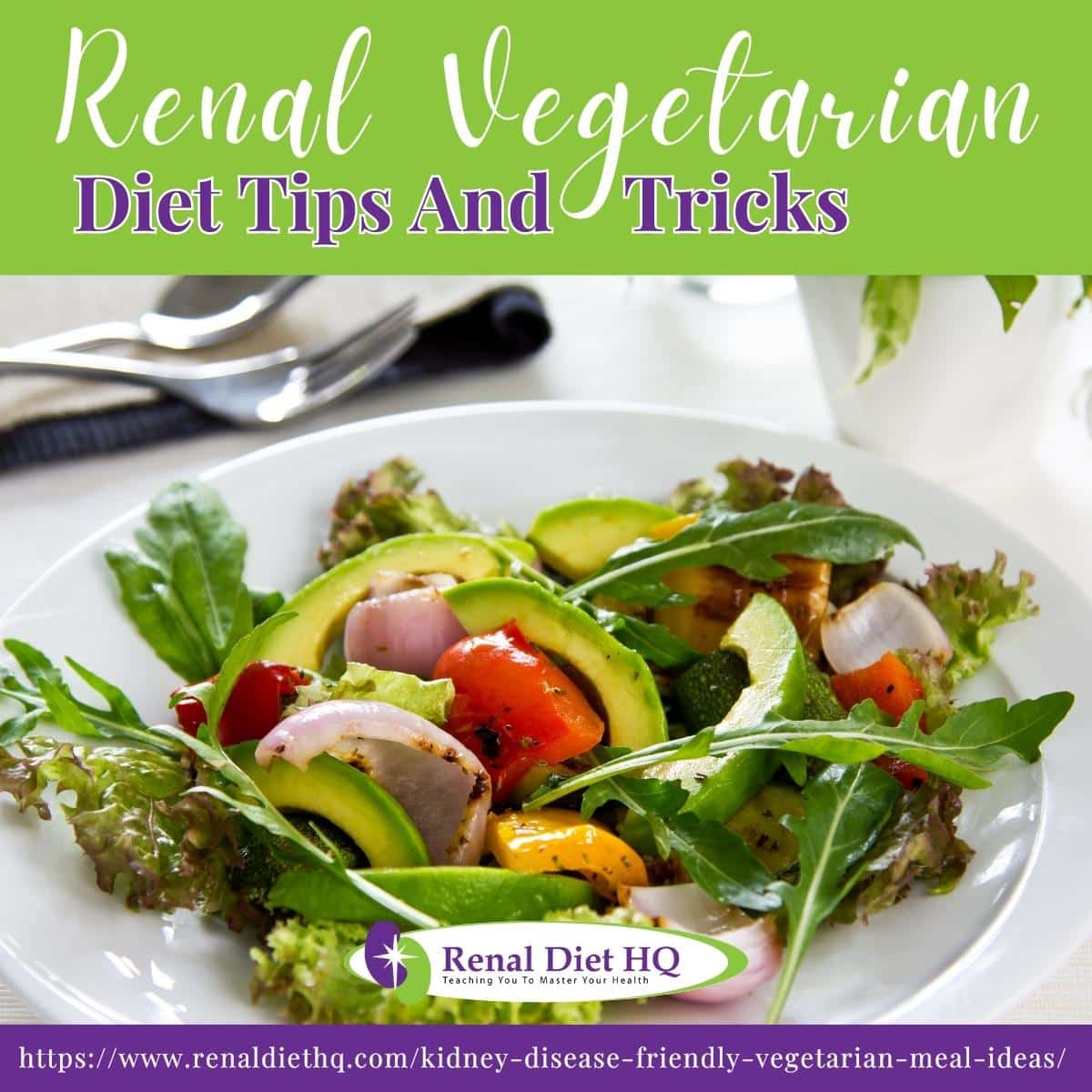
Foods To Eat And Avoid
It’s important for renal failure patients to be mindful of what foods they eat in their daily diet. Low-potassium fruits, low-phosphorus grains, and low-sodium dairy are all good options.
Calcium sources like nuts and nut butters, tofu, and fortified plant milks should also be incorporated into meals regularly.
When it comes to food preparation, steaming or baking vegetables is preferable over boiling them as this can help reduce the number of minerals in the food that may not be beneficial for kidney health.
Additionally, incorporating herbs and spices can add flavor without adding additional sodium.
Overall, following a renal vegetarian diet requires careful planning and forethought when it comes to selecting which foods to include – as well as how these foods will be prepared.
In order to ensure optimal nutrition while minimizing any potential negative impacts on kidney health. Making smart choices now can lead to long term benefits down the line!
Protein Alternatives
Vegetarian diets can be nutritious and delicious, but it can be challenging to get enough protein intake. The dietary recommendation for protein vary based on the stage of CKD (e.g., low-protein diet for pre-dialysis, increased protein intake for those on dialysis).
Fortunately, there are lots of plant-based proteins that can help you stay full and satisfied. From soy-based products to nut butters and quinoa recipes, it's easy to find creative ways to get enough daily intake of protein as a vegetarian.
A great place to start is with lentil soups or tempeh burgers for lunch or dinner. Lentils are an excellent source of plant-based protein, fiber, and other essential vitamins and minerals.
If you’re looking for something different than soup or sandwiches, try making veggie fajitas using tofu instead of meat – they're surprisingly tasty! Of course, you can always check out the best soup for kidney disease to see if you enjoy it.
There are also plenty of vegan versions of classic dishes like macaroni & cheese made with nutritional yeast or tacos made with black beans and corn.
Finally, if you need a quick snack on the go, reach for some natural nut butter spread over apples slices or whole grain crackers. Nut butters contain healthy fats along with protein which will keep you feeling satiated until your next meal.
Having enough dietary protein intake should not be a challenge when you follow a plant-based diet. With these simple tips in mind, you'll soon be well on your way to creating flavorful meals packed with plant-based proteins!
Low-Potassium Fruits And Vegetables
When following a renal vegetarian diet, it's essential to know the low-potassium fruits and vegetables that you can enjoy. Here are some of the best options:
- Apples
- Blueberries
- Strawberries
- Cucumbers
For those on a renal vegetarian diet, apples are an excellent choice because they provide vitamins and minerals while keeping potassium levels low. They also have plenty of fiber which helps with digestion and will easily fulfill your daily need for dietary fiber intake.
Blueberries are another great option as they contain fewer calories than other fruits but still pack in lots of flavor. Along with being high in antioxidants, blueberries are also suitable for those looking to keep their potassium intake down.
Strawberries and cucumbers make great snacks or sides to meals as they both offer important nutrients without too much potassium. Are strawberries good for kidneys?
There's no need to limit yourself when it comes to eating healthy foods on a renal vegetarian diet. In addition to these four choices, there are many other delicious, low-potassium fruits and vegetables such as oranges, kiwi fruit, lemons, garlic, carrots, lettuce, spinach, green beans and celery. You can always pair these fruits with low potassium bread and other low potassium side dishes.
Eating these types of food will help support your body’s needs while maintaining proper nutrition within kidney function limits. So don't be afraid to try new recipes or explore different kinds of produce!
With a little creativity and dedication, you can create delicious dishes that fit into your renal vegetarian lifestyle.
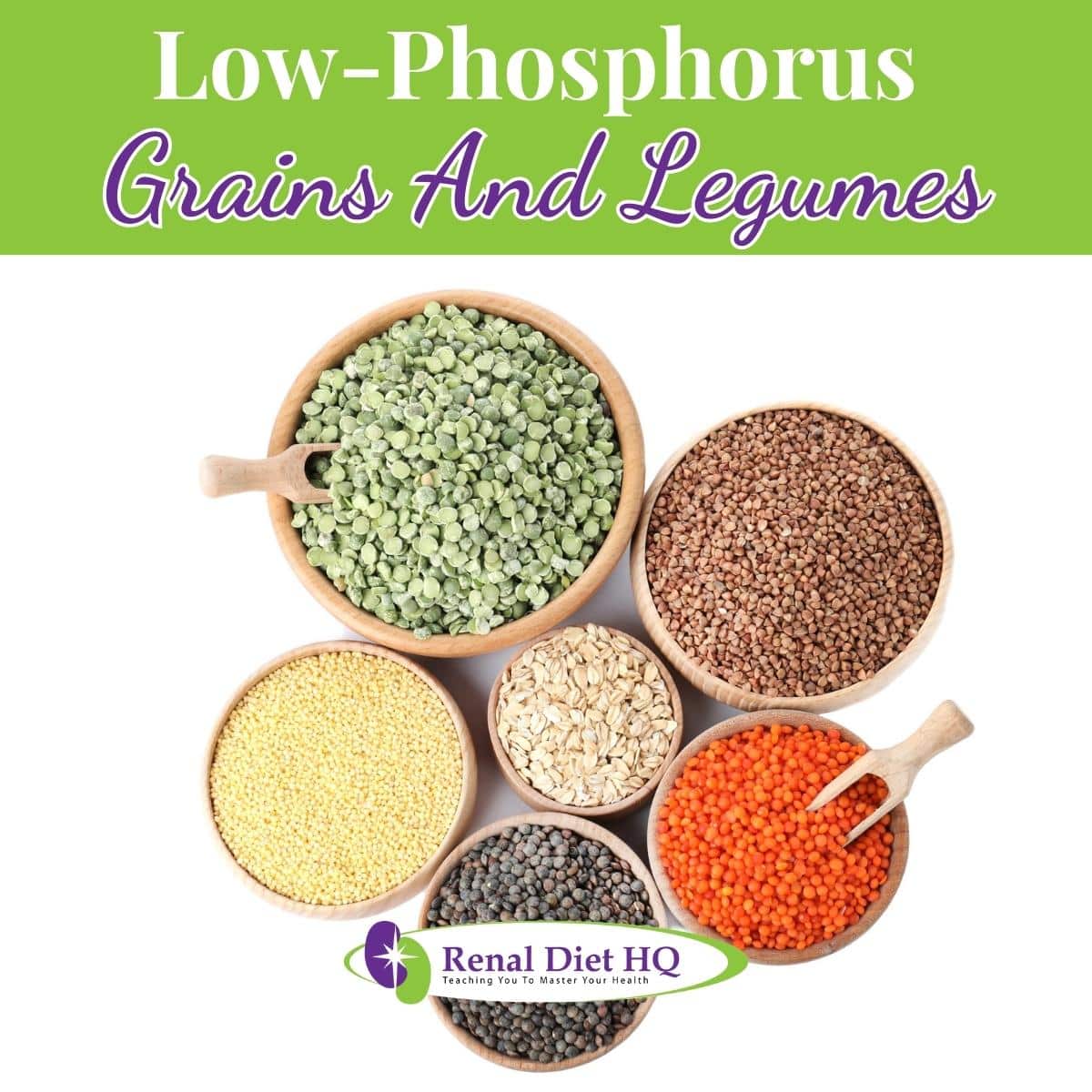
Low-Phosphorus Grains And Legumes
Renal vegetarian diets can be both delicious and nutritious. There are many grains and legumes that provide essential nutrients for a healthy lifestyle while still being low in phosphorus.
To make the most of your diet, it’s important to know which ones contain lower amounts of this mineral so you can reduce any complications accumulating too much phosphorus can cause.
Here is a helpful table containing some popular whole-grain, low-phosphorus options:
| Grain/Legume | Phosphorus Content (mg) per 1 Cup Serving |
| Lentils | 85 mg |
| Kidney Beans | 117 mg |
| Black-eyed Peas | 112 mg |
| Chickpeas | 146 mg |
These grains and legumes serve as excellent sources of iron, fiber, protein, B vitamins, calcium, magnesium, potassium and zinc without having to worry about too much phosphorus.
In addition to adding them into salads or kidney friendly soups and stews they also work great when added to sauces or casseroles. It's easy to get creative with these ingredients! By incorporating them into daily meals they help ensure that all dietary needs are fulfilled while not overdoing it on phosphorus levels.
For those looking for even more ways to enjoy a renal friendly diet, there are plenty of recipes available online that use various combinations of these items.
With just a few substitutions to your go-to recipes, you can turn an ordinary meal into something special that not only tastes great but also helps keep you healthy.
Low-Sodium Dairy Alternatives
Going beyond low-phosphorus grains and legumes, renal vegetarian diets can also benefit from dairy alternatives that are lower in sodium. Low-sodium yogurt is a great choice to add creaminess without salt.
Sodium-free options provide the creamy, tangy cheese flavor without any extra sodium. For those who enjoy milk, there's sodium-reduced milk which has its sodium content reduced by up to 50%.
Unsalted butter is a must for cooking or baking recipes as it doesn't have added salt like salted butter. Finally, there's salt-free cottage cheese packed with protein and calcium but no added salt.
All these ingredients make delicious meals while supporting your kidney health needs! Making creative use of them will help you avoid feeling limited on a renal vegetarian diet.
And if you want an even greater variety of flavors, look for other vegetable options such as peppers, mushrooms, tomatoes, squash, and more seasoned with herbs and spices instead of salt for a low-sodium meal. You can add even more flavor by learning how to season food without salt.
With just a little bit of creativity, anyone following this type of diet can create healthy and flavorful dishes that support their kidney health goals!
Calcium Sources
For vegetarians, finding enough calcium can be difficult since animal-sources like dairy, including low-fat dairy products are generally off limits – however there are plenty of vegetarian sources of calcium too!
The first place to look for plant-based calcium is in foods naturally high in this nutrient such as kale, spinach, fortified soy milk, and tofu. Many other vegetables contain smaller doses so try incorporating more cruciferous veggies into your meals such as broccoli and cabbage.
You may be surprised as to how well broccoli and kidney disease go together!
Not only will these provide some extra nutrition to your plate but they also have great taste when cooked correctly!
Grains and nuts can also offer some additional calcium. Almond butter makes a great spreadable snack while whole wheat bread potassium adds vital nutrients to any sandwich or wrap.
If you're still having trouble reaching recommended daily levels of calcium, then consider taking a supplement or adding fortified foods like orange juice or breakfast cereals into your diet. You can easily find cereals low in potassium and phosphorus that work well on the renal diet.
Calcium supplements come in many forms including tablets, capsules and liquid drops which make them easy to incorporate into your day no matter what schedule you follow! However, remember to consult first with your doctor before adding any supplements in your regimen.
Food Preparation Tips
Meal planning is an essential part of a renal vegetarian diet. When you have your meals planned out, it will be easier to prepare them and keep track of the ingredients in the food you're eating.
You can also save money since preparing your own food can help you save costs. When cooking vegan recipes, try to use fresh ingredients as much as possible for maximum nutrition.
Look for seasonal produce at farmers' markets or local health food stores so that you can get more bang for your buck while still getting the most nutrient-dense ingredients available. Canned and frozen items are great, too! Go ahead and check out this list of fresh or canned vegetables for a renal diet.
Cooking smarter means taking advantage of time-saving methods such as batch cooking, prepping in advance, and using slow cooker meals when necessary. This way you won't spend hours in the kitchen but still enjoy delicious, healthful meals every day.
With some thoughtful planning and preparation, creating tasty plant-based dishes doesn't have to be complicated or hard work; it's simply about finding smart ways to eat well and healthy with the resources available!
Snack Ideas
A healthy snacking routine is an important part of maintaining a renal vegetarian diet. To make sure you are getting the most out of your snacks, it's important to find creative recipes that follow dialysis diet guidelines and still taste delicious. Here are some tips for finding great snack ideas for a renal vegetarian diet:
First, look for vegan snacks with low levels of sodium and potassium. This can help keep your blood pressure in check while giving you delicious flavors.
Some excellent examples include unsalted nuts and seeds, hummus or veggie dip, fresh fruits, veggies with dips like salsa or guacamole, whole grain crackers, popcorn (without added butter or salt), air-popped chips and dark chocolate (in moderation).
Second, explore new recipes! There are so many tasty vegetarian snack recipes online; all you need to do is search for "renal friendly" or "kidney-friendly" recipes.
If you're feeling adventurous, experiment by adding spices such as cumin, oregano, garlic powder and chili flakes to give your dishes more flavor and variety while cutting back on salt content.
Try making roasted chickpeas or creating fun smoothie bowls from almond milk blended with frozen fruit - perfect for those hot summer days!
Snack time doesn't have to be boring when following a renal vegetarian diet - just get creative! With some inspiration from these suggestions and a little bit of experimentation in the kitchen, you'll soon create some mouthwatering treats that won't compromise your health goals.
Special Considerations For Diabetics
Diabetics require special considerations when following a renal vegetarian diet due to possible difficulty in keeping blood glucose levels in check.
Since diabetes can be caused or aggravated by poor eating habits, those with history of diabetes mellitus should pay extra attention to their food choices and portion sizes. There is a specific diabetic renal diet meal plan that people with diabeties can follow.
Eating patterns for diabetics differ from those of non-diabetic people as they need to balance the amount of energy intake, proteins, and fats in each meal.
A healthy eating pattern for diabetics includes:
- Regular meals
- Distributing carbs evenly throughout the day
- Selecting foods with low glycemic index values; monitoring calorie intake
- Limiting sodium intake
- Avoiding processed and fried foods
- Reducing fat intake (especially saturated fat)
- ...and increasing soluble fiber consumption.
Renal vegetarian diets provide an excellent option for diabetics since many plant based foods have fewer calories than animal products. Vegetarian-diabetics-diet plans are generally low in both sodium and cholesterol which helps reduce risk factors associated with diabetes like heart disease and stroke.
To ensure optimal nutrition, diabetics on a renal vegetarian diet plan should include whole grains, legumes, nuts, seeds, fruits, vegetables, dairy alternatives such as soy milk and tofu yogurt along with fortified cereals and juices containing Vitamin B12 and iron.
Additionally, it’s important that vegetarians get enough protein through plant sources like beans and lentils.
When planning a diet for diabetic patients who follow a renal vegetarian lifestyle, it is essential that health professionals including kidney dietitians work together with them to create individualized dietary plans.
This will help them make informed decisions about appropriate nutrients as well as identify any potential deficiencies that could arise due to the restricted nature of this type of diet.
With proper guidance from healthcare professionals coupled with patient compliance to prescribed dietary guidelines - those with a diagnosis of diabetes mellitus can successfully manage their condition while adhering to vegetarian principles.
FAQs About Renal Vegetarian Diets
With proper understanding and implementation of kidney friendly vegetarian diets combined with smart choices in regards to lifestyle modifications, it is absolutely possible for those living with hypertension to lead healthier lives by adhering to a renal vegetarian diet.
A good place to start when adapting a renal vegetarian diet to treat high blood pressure is incorporating more plant-based proteins into your meals. This can be done through beans, legumes, and nuts which are all rich sources of protein that contain low amounts of sodium and fat; both of which can contribute significantly to an increase in one's blood pressure levels.
Additionally, focusing on kidney friendly fruits and vegetables as part of any renal diet will provide essential vitamins and minerals necessary for overall health while helping reduce risk factors associated with hypertension such as obesity or diabetes since they have fewer calories than processed foods.
It's important however not to forget about other components of maintaining healthy blood pressure levels besides dietary changes alone.
Regular exercise has been proven time and again to help lower both systolic and diastolic readings so finding ways to incorporate physical activity into one’s daily routine (even if just walking 20 minutes per day) should also form part of their kidney friendly vegetarian diet plan.
Furthermore, controlling stress levels through relaxation techniques like yoga and ckd or meditation should be considered along with avoiding smoking cigarettes or consuming too much alcohol as these substances can worsen strain on the blood vessels and hypertension symptoms over time.
Those affected by high blood pressure can gain better control over their condition without having to give up delicious meals entirely by following a renal vegetarian diet!
By using these tips as starting points towards creating individualized nutritional plans, those looking at improving their heart health could reap the numerous health benefits of a vegetarian lifestyle.
When trying to follow a renal vegetarian diet, one of the most important steps is finding specialized recipes. People with high blood pressure and other kidney-related issues need to pay special attention to their diets in order to stay healthy.
Fortunately, there are plenty of delicious vegan recipes that can be adapted for a renal vegetarian diet.
A well-balanced renal vegetarian meal plan consists of fresh fruits and vegetables, low-sodium proteins like beans and lentils, whole grains such as quinoa or oats, and plant-based fats like avocado or nuts.
Renal vegetarian recipes should also include sources of calcium like tofu or fortified cereal and vitamin B12 from foods such as nutritional yeast or fortified almond milk.
For those who want more culinary inspiration on how to create nutritious meals within this dietary framework, there are many cookbooks available dedicated solely to creating tasty vegan dishes specifically designed for people following a renal vegetarian diet.
From hearty soups to flavorful stir fries and simple snacks; these resources will help make it easy (and enjoyable!) for anyone looking for new ideas when cooking up a traditional renal vegetarian meal.
To get you started on quick and easy meals you can prepare while on a renal vegetarian diet, here are some recipes to follow:
Vegetarian Chili
Chili and soup are some of the easiest vegetarian meals. They make great delicious comfort meals and take almost no effort at all to cook.
1. Start by chopping up and prepping your ingredients.
2. Some great additions are onions, bell peppers, garlic, and different kinds of beans such as kidney beans, pinto beans, and navy beans.
3. If you don’t have any dietary restrictions for potassium and your doctor says it is okay, you can also add tomatoes.
4. Whatever vegetables you like can be added to your chili. You can even crumble up tofu into your chili or use meat substitute ground “beef”.
Now all you have to do is to add all of your ingredients into a big pot or slow cooker. Add in your favorite chili spices like cayenne pepper, cumin, paprika, garlic powder, onion powder, and oregano, all added to your taste. Let everything simmer for a few hours or all day for even more flavor.
Fajitas
Another delicious and easy vegetarian meal is fajitas. You can use any of your favorite vegetables, but the best ones are onions, bell peppers, mushrooms, broccoli, and cauliflower. Serve with flour tortillas and cilantro rice and beans.
1. Prep your ingredients by chopping them and slicing them into strips.
2. Simply heat some olive oil in a large pan and throw your vegetables in the pan.
3. Sauté the veggies until they are cooked to your liking and then season with chili or cayenne pepper, paprika, onion and garlic powder, and cumin.
4. Make cilantro rice and beans by simply mixing cooked brown rice with cooked black beans and some fresh chopped cilantro. You can always make this kidney friendly fried rice recipe, too!
Pesto Pasta with Roasted Asparagus
A deliciously simple pasta dish takes little to no time to come out impressive. For this dish, chop some asparagus into one-inch pieces. Toss them in a small amount of olive oil and lay them out on a pan.
Roast in an oven preheated to 500 degrees for about ten minutes. You can add in other vegetables that you love also.
For the pesto sauce, you will need a handful of fresh basil, two cloves of garlic, and about half a teaspoon of lemon juice.
Use a blender or food processor to blend the ingredients together and you have your sauce.
Toss your vegetables, pasta, and sauce together and enjoy a light and refreshing, delicious pasta.
These three simple recipes are not only delicious and kidney-friendly, but they can be modified to use your favorite ingredients, spices, and other additions.
You can use these recipes every night with a few changes and never grow bored of your kidney safe vegetarian diet.
It's important to consider any health risks associated with following a plant-based diet. While many people opt for this type of lifestyle for personal or ethical reasons, it is essential to be mindful of the potential issues that can arise from an unbalanced or specialized diet. There are specific plant based recipes for kidney disease you can try out!
When considering whether there are any health risks associated with following a renal vegetarian diet, it is important to note the specific needs of individuals who have high blood pressure and kidney disease.
These populations may need lower amounts of protein, sodium, potassium and phosphorus than healthy patients so this should always be a consideration. Additionally, some plant-based proteins contain oxalates which can worsen conditions such as kidney stones if consumed in excess.
A vegetarian diet is one that excludes the consumption of animal products and is based on plant foods such as grains, legumes, nuts, seeds, fruits, and vegetables.
While vegetarian diets are often rich in essential nutrients, they can lead to nutrient and vitamin deficiencies if not properly planned.
Protein is an essential nutrient for proper body functioning, and those on a vegetarian diet may be at risk of not getting enough. Plant proteins, such as those found in legumes and nuts, are not complete proteins and therefore may not provide all of the essential amino acids the body needs for optimal health.
It is important for vegetarians to include a variety of plant proteins in their diet and to combine different plant proteins in order to get a complete amino acid profile. Additionally, some vegetarian-friendly products, such as soy milk and tofu, are fortified with protein to help meet the daily protein needs of vegetarians.
Iron is another nutrient vegetarians may be at risk of not getting enough of. Iron is found in both plant and animal sources, but the type of iron found in plants, known as non-heme iron, is not as easily absorbed by the body as the type of iron found in animals, known as heme iron.
To maximize iron absorption, vegetarians should pair plant-based iron sources with a vitamin C-rich food like citrus fruits, tomatoes, or bell peppers.
Additionally, those on a vegetarian diet should ensure they are getting enough zinc, which helps the body absorb iron more efficiently.
The B vitamins are another set of nutrients that vegetarians may be at risk of not getting enough of. B vitamins are important for energy production, and some, such as vitamin B12, are only found in animal products.
To ensure adequate intake of B vitamins, vegetarians should include plenty of B-vitamin rich plant foods in their diet, including legumes, nuts, seeds, and fortified foods like fortified cereals.
Additionally, vegetarians may need to supplement with a B-complex vitamin to meet daily needs. Vitamin D is an important vitamin that helps the body absorb calcium and is critical for bone health.
Vitamin D is found naturally in very few foods, with the main source being sunlight. Since vegetarians may not get enough exposure to sunlight, they may be at risk for vitamin D deficiency.
To ensure adequate vitamin D intake, vegetarians should include fortified foods, such as fortified milk and cereals, in their diet and may need to supplement with a vitamin D supplement.
Finally, omega-3 fatty acids are important for heart health, brain health, and overall well-being, and vegetarians may be at risk of not getting enough. Omega-3 fatty acids are found naturally in fatty fish, but vegetarians can get omega-3s from plant sources, such as flaxseed, chia seeds, and walnuts.
Additionally, vegetarian-friendly foods, such as some brands of eggs, are now fortified with omega-3 fatty acids to help meet the daily needs of vegetarians.
In summary, vegetarian diets can be a healthy way of eating for chronic kidney disease patients, but if not properly planned they can lead to nutrient and vitamin deficiencies.
To ensure adequate intake of essential nutrients, vegetarians should include a variety of plant proteins, iron-rich foods, B-vitamin rich foods, fortified foods, and omega-3 rich foods in their diet.
Additionally, vegetarians may need to supplement with a B-complex vitamin and/or vitamin D supplement to meet daily needs.
To ensure safety when following a renal vegetarian diet, consider these tips:
1. Consult your doctor and renal dietitian before making drastic changes to your dietary habits.
2. Educate yourself on how much protein, vitamins, minerals and other nutrients you need each day based on your condition and medications prescribed by your physician.
3. Incorporate nutrient dense foods into meals like legumes, nuts and seeds, whole grains and fortified plant milks so you can get adequate levels of calcium and vitamin D while avoiding animal products.
4. Monitor how you feel after eating certain types of food – noting any possible reactions or complications due to overconsumption or under consumption of certain food components.
If done correctly, following a renal vegetarian diet has been linked to numerous benefits including improved heart health through lower cholesterol levels and reduced risk for chronic diseases such as diabetes.
However it is imperative that those considering this route understand the risks involved in order to make informed and guided decisions about their own individualized nutritional needs.
It is no secret that vegetarian diets are becoming more popular, and for good reason. They have been linked to numerous health benefits such as weight loss, better heart health, and improved blood sugar levels, but what about those who suffer from kidney disease? Is it still possible to follow a renal vegetarian diet without any additional supplements?
To answer this question we must first understand the implications of having reduced kidney function on nutrition. When kidneys are not functioning optimally they cannot filter waste products properly, leading to an accumulation of toxins in the body which can further damage the organs.
This means that people with compromised kidney function need to be especially mindful when choosing their food sources and supplement regimens in order to ensure their bodies are getting all the nutrients they require.
When following a renal vegetarian diet there are certain vitamins and minerals that should be particularly monitored due to their importance in maintaining healthy renal function. These include:
Vitamins & Minerals:
Vitamin B12 – essential for red blood cell production
Iron – important for oxygen transport
Potassium – helps regulate fluid balance within cells
Magnesium – assists in muscle relaxation
Protein Sources:
Soy-based foods such as tofu or tempeh
Legumes (beans) including lentils, chickpeas and black beans
Nuts & Seeds like almonds and pumpkin seeds
Plant-Based Omega 3s:
Flax Seeds & Chia Seeds
Walnuts
Hemp Hearts
Taking supplements is often necessary for vegetarians and vegans to make sure their nutrient needs are met. However, when it comes to someone with renal insufficiency, special care must be taken when selecting these supplements.
It is recommended that anyone considering going on a renal vegetarian diet consult with a specialist including their doctor and a renal dietitian before making any drastic changes so that they can determine exactly which type of vegan/vegetarian supplementation may be beneficial based on their individual dietary requirements.
This is because renal failure patients need periodic monitoring of their renal function parameters, including creatinine, blood urea nitrogen, serum uric acid levels, etc. to better assess their condition.
With careful consideration of one's specific nutritional needs, it is possible for people living with kidney disease to safely follow a vegetarian kidney diet while avoiding deficiencies through proper supplementation.
Following a renal vegetarian diet doesn't have to mean giving up eating out. With the right tips and tricks, you can still enjoy restaurant food that adheres to your dietary needs.
Eating at restaurants while on a renal vegetarian diet requires some forethought and planning ahead. You should research what options are available beforehand by looking at menus online or calling the restaurant directly. This way, you'll be able to determine if they offer any dishes suitable for your diet before arriving.
Most restaurants will also accommodate special requests in order to meet your specific requirements. However, it's important to be sure of this when making reservations!
Here are three tips to consider:
1. Look for vegan-friendly restaurants near you, as these may offer more options than traditional eateries.
2. Ask questions about ingredients used in each dish and make substitutions where possible.
3. Consider ordering multiple small plates instead of one large meal so that you're getting the variety of flavors and textures desired without feeling deprived or overwhelmed with choices.
By following these simple steps, people with kidney disease following a vegetarian diet can easily find suitable and delicious meals when eating out.
The key is knowing which places provide plant-based offerings and being willing to ask questions about how dishes are prepared in order to ensure they fit within the boundaries of a renal vegetarian lifestyle.
A Vegetarian Lifestyle Is A Healthy Choice, Even With CKD
A renal vegetarian diet is a great choice for those with high blood pressure and looking to better manage their condition. It can be tricky to adjust to at first, but with the right recipes and knowledge of any potential health risks, it doesn’t have to be overwhelming.
Supplements may not always be necessary, though they can help fill nutritional gaps in certain cases. Eating out while following a pre-dialysis renal diet isn't impossible either; there are plenty of options available if you know where to look.
Overall, a renal vegetarian diet requires some dedication and planning - like any other lifestyle change, but the benefits will be worth it once you commit to it.
With its emphasis on plant-based foods, transitioning from an unhealthy diet to one full of fresh vegetables, legumes, nuts, and the like is like turning over a new leaf. You may even be surprised to find yourself feeling energized and healthier than ever before.
So don't let the complexity scare you away. Instead, embrace it as an opportunity to make positive changes towards bettering your health. A renal vegetarian diet is an excellent lifestyle option that encourages healthy eating habits that can support your health goals even while managing chronic kidney disease.


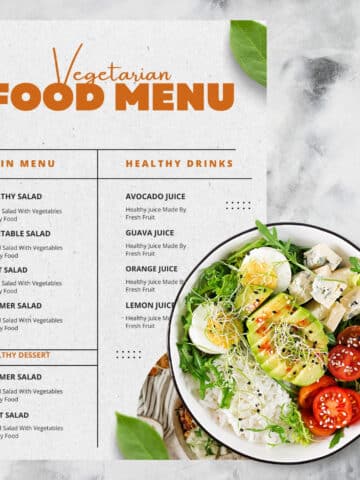
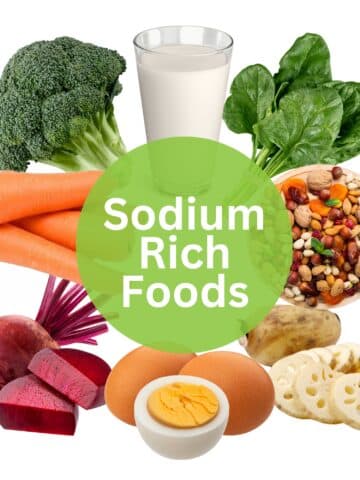
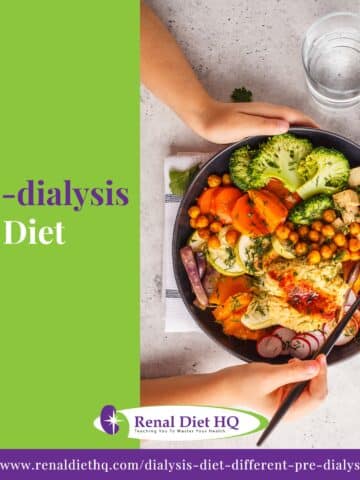
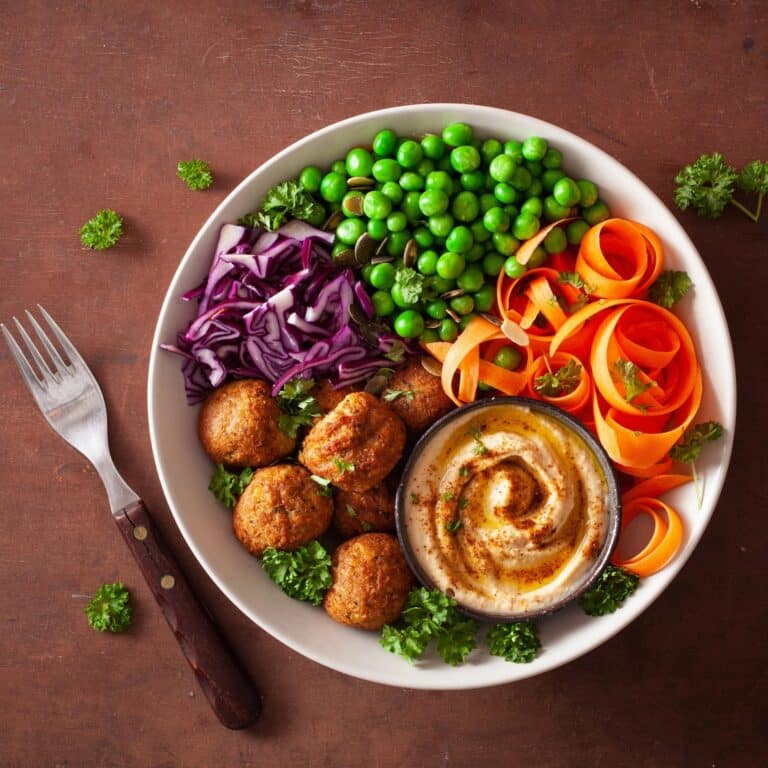

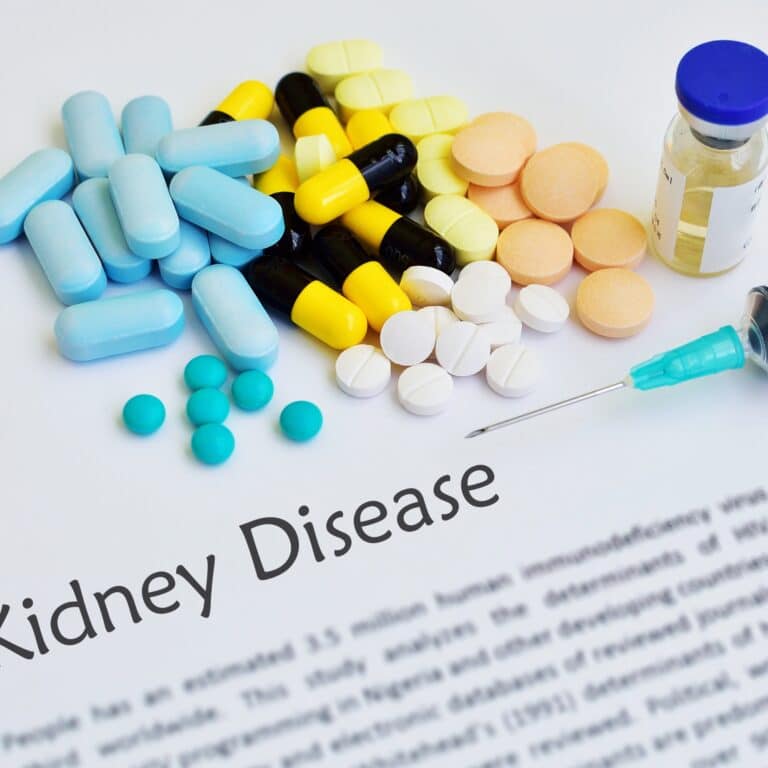
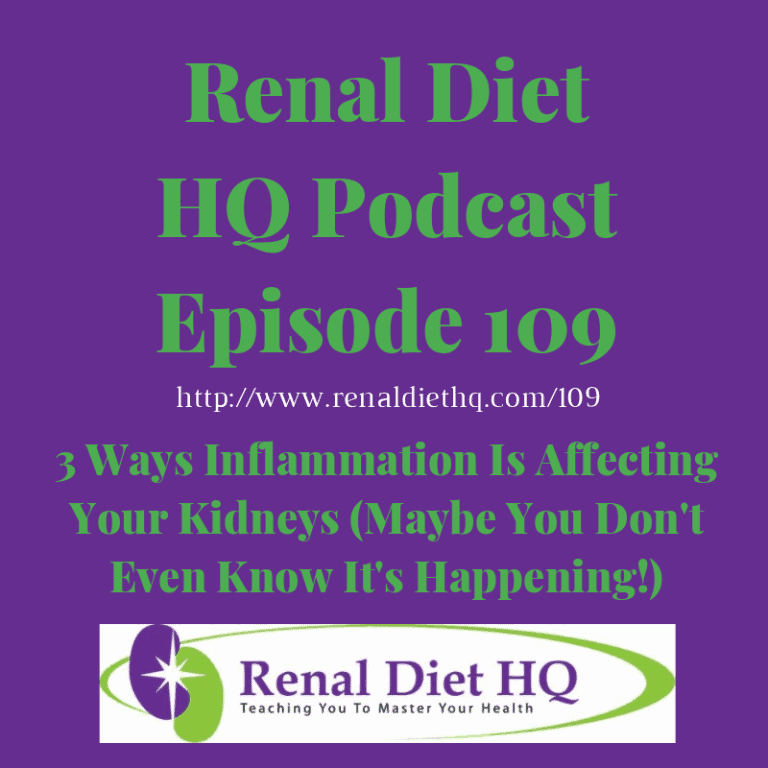
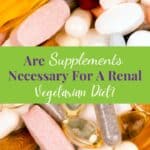
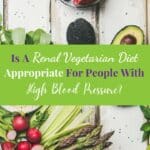

Hello-
Wondering about where you’re located to set up appt. or to have a phone consult. Do you provide those services? Please advise.